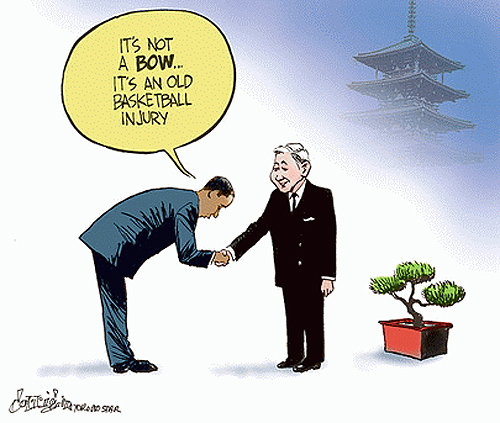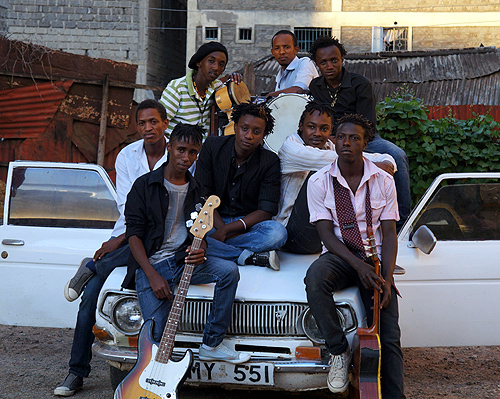 Israel’s steamy response to Obama’s acceptance of the new Palestinian government reveals a massive hypocrisy in Israel’s dealings with Africa.
Israel’s steamy response to Obama’s acceptance of the new Palestinian government reveals a massive hypocrisy in Israel’s dealings with Africa.
Yesterday Palestine sort of came together, as Fatah (that recognizes Israel) formed a coalition with Hamas (that doesn’t).
The attempted amalgam was further complicated by the fact that Fatah is considered a wholesome government by the U.S. and much of the western world, and Hamas is considered a terrorist organization.
Complications hardly end there: mixtures of oil and water neither lubricate engines or quench thirst. It’s not clear to me the new coalition will be able to do anything but split up, again.
Be that as it may, Israel exploded diplomatically.
Israel spent 24×7 explaining to the media how hypocritical the U.S. was. On today’s Morning Edition, the Israeli ambassador to the U.S. fumed.
I applaud Obama’s action because governments rarely mean what they say, only what they do, and it made me think of Israel’s long and “hypocritical” relationship with Africa.
Apartheid was prolonged, the war in Rhodesia/Zimbabwe was prolonged, the dictatorship of Robert Mugabe is currently prolonged, the development of Ethiopia was inhibited and horrible men from today’s Kagame in Rwanda and Amin in Uganda were sustained … because of Israeli diplomacy, often secret, often not.
Israel’s justification in these and other similar African initiatives was basically two-fold: enhance their national security and protect and recover African Jews. And the dedication to these two missions was uncompromisable, even if it created a conflict with other established credos.
When I was guiding in a once peaceful eastern Congo (now the DRC) in the mid 1980s, I flew my clients south from Beni to Goma on DC3s that came from Israel carrying weapons to the then Rhodesia. I’ve never been clear which side they were destined for, but wherever they were headed it was illegal… and that didn’t matter to the Israelis.
The current dictatorship of the weirdo despot Robert Mugabe is legitimized by an Israeli firm, Nikuv, which “manages” the farce called national elections which keeps Mugabe in power. Many Israelis are themselves furious, calling Nikuv Mugabe’s “fixers.”
The arms shipments to Rhodesia in the 1980s were likely more political than commercial, but it seems Nikuv might be more commercial than political.
In the runup to his mass slaughters, Idi Amin was supported heavily by Israel when the rest of the world had abandoned him. Shortly after staging his coup, Amin visited Israel, since no one else would have him.
Today in neighboring Rwanda, another despot is supported heavily by Israel, president Paul Kagame. Apparently there are some in Israel who believe that Tutsis are ancient Jews.
That seems like a stretch, but it’s no stretch that many Ethiopians were ancient Jews. I’ve seen myself primitive huts 3 or 4 decades ago with Torahs in Hebrew the only book around, and totems of ancient Israeli personalities like the Queen of Sheebah. I’ve seen entire villages that speak only a local dialect and Hebrew.
The belief that these “Falasha” were the Lost Tribe of Dan resulted in 30 years of Israeli involvement in Ethiopia so that it could repatriate 40,000 of the Falasha. The mammoth undertaking ended last year.
In order to facilitate this undertaking, the government of Israel was the only government except the Soviet Union that supported the barbarism of ruthless Ethiopian leaders in the 1980s.
My point has nothing to do with whether these Israeli efforts were right or wrong, but that they were practical to an extreme.
Obama’s search for peace in The Mideast is not practical to an extreme, it’s just practical. Israel’s condemnation? The pot calling the kettle black.
